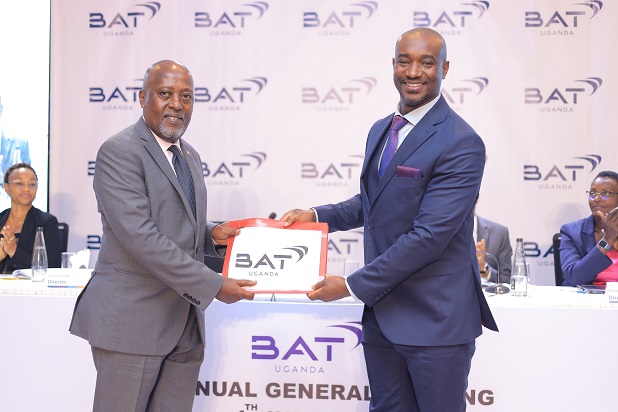If you need a passport you don’t have to travel to Kampala to line up at the Ministry of Internal Affairs, for this service is now online, the UCC Head of Consumer Affairs Joseph Kizito told an attentive crowd at the Hoima Public Library on Friday.
“If you have a child who has sat national exams, you don’t have to go to Kampala to check their results; they are on your phone,” he added.
To this, NITA Uganda’s Stella Kobusingye further added that 100 government services are now available online, the passport office and UNEB being just two of them.
Electronic government or e-Government is the use of ICT to deliver public services in a convenient, efficient and cost-effective manner using digital platforms.
Using digital platforms reduces the need for citizens to walk to government departments to get such services or for government institutions (MDAs) to deploy staff to interact with citizens face-to-face, thus reducing the cost of service delivery.
Through the Rural Communications Development Fund (RCDF), UCC seeks to boost people’s ability to make use of e-Government services by equipping selected public libraries across the country with computers and internet connectivity infrastructure.
In that regard, ten (10) libraries in Hoima, Nakaseke, Soroti, Moyo, Paidha and Mbarara, among others, have been equipped with ten (10) computers each, multipurpose printers and wireless Internet.
To promote effective usage of these facilities, UCC/RCDF has been running a sensitisation programme aiming to empower users of the beneficiary libraries with knowledge about e-Government services.
At Hoima Public Library last Friday, UCC and NITA Uganda staff took time off to take small groups of library users through the eCitizens portal (eCitizen.go.ug) that NITA Uganda has developed to anchor e-Government services.
Speaking to the trainees and Hoima Municipal Council officials gathered at the library on Friday, the UCC Head of Consumer Affairs Mr Kizito described e-Government as “the government moving away from Kampala and coming to your houses.”
The chief guest Hellen Mulumba, a councillor in the Hoima Municipal Council, revealed that since the library was equipped, usage has grown by 40%. In the week the sensitisation outreach was conducted, 624 people were registered as having visited the library.
Eighty-year-old Joseph Isingoma, one of the regular users of the library, said he was here because “information is power, and I am still living.”
Earlier, at Mbarara Municipal Library, one of the beneficiary libraries, Mr Adonia Katungisa, the Director of the National Libraries of Uganda, challenged residents of the town to make use of the free service.
“This facility is here free of charge for you to access; go to the [Internet] café only when we are closed,” he said.
Modern technologies have transformed the way business is conducted and social services delivered, and the government has moved to adopt these emerging ICTs to modernise service delivery.
By deploying new ICTs in service delivery through e-Government, the government aims to simplify procedures, bring transparency, accountability, and make credible timely information available to all citizens. The expected outcome of these interventions is efficient and cost-effective service delivery.
UCC, being the agency charged with the sustainable growth and development of a modern communications sector in Uganda, is at the heart of the government’s e-Government ambitions.
Through this initiative and related ones such as Digital Literacy training for the informal sector, Small and Medium Enterprises (SMEs) and Persons with Special Needs (PSNs), UCC/RCDF aims to build the public’s capacity in the use of ICTs in business and other key sectors such as education, agriculture and health.





